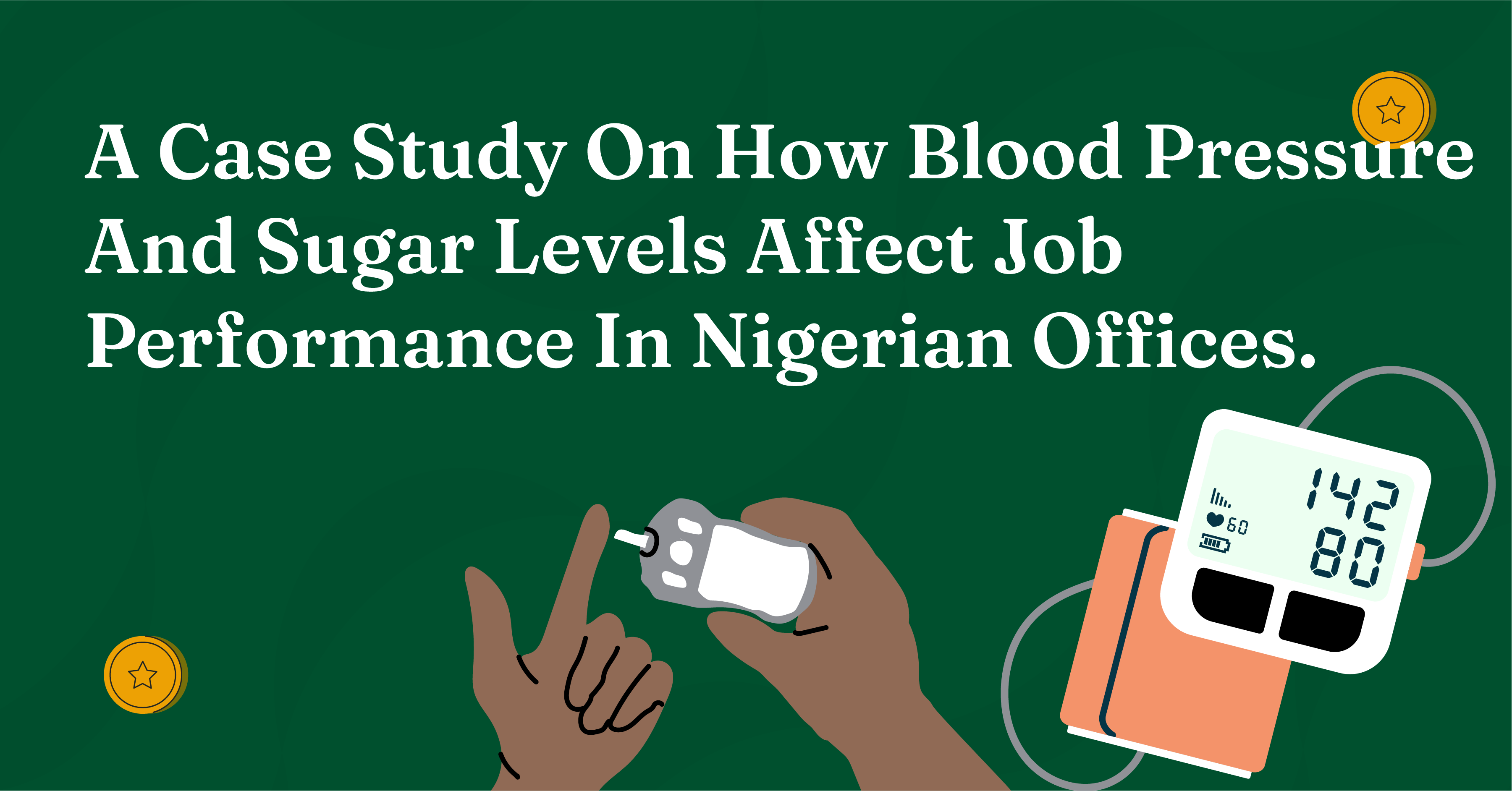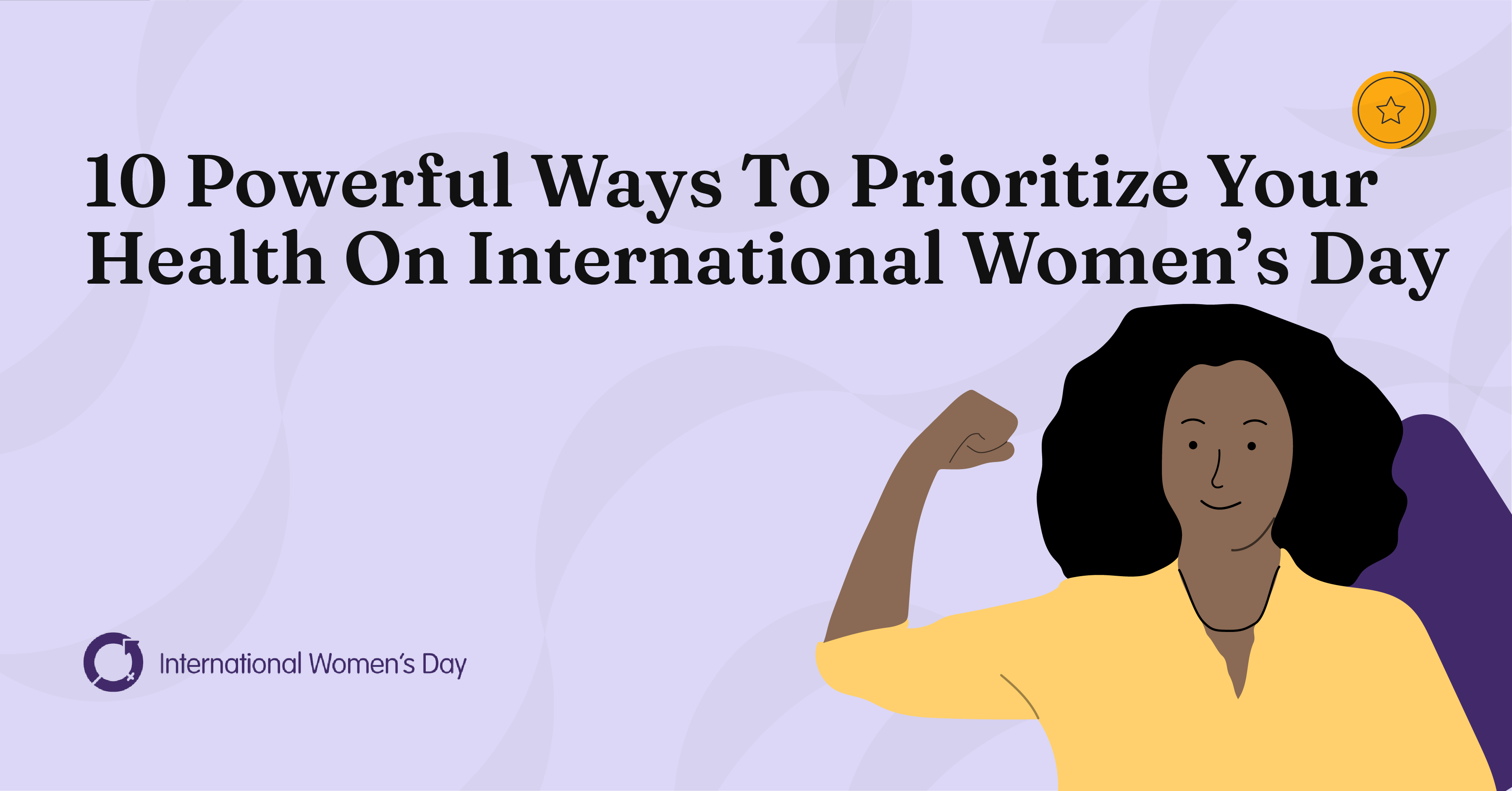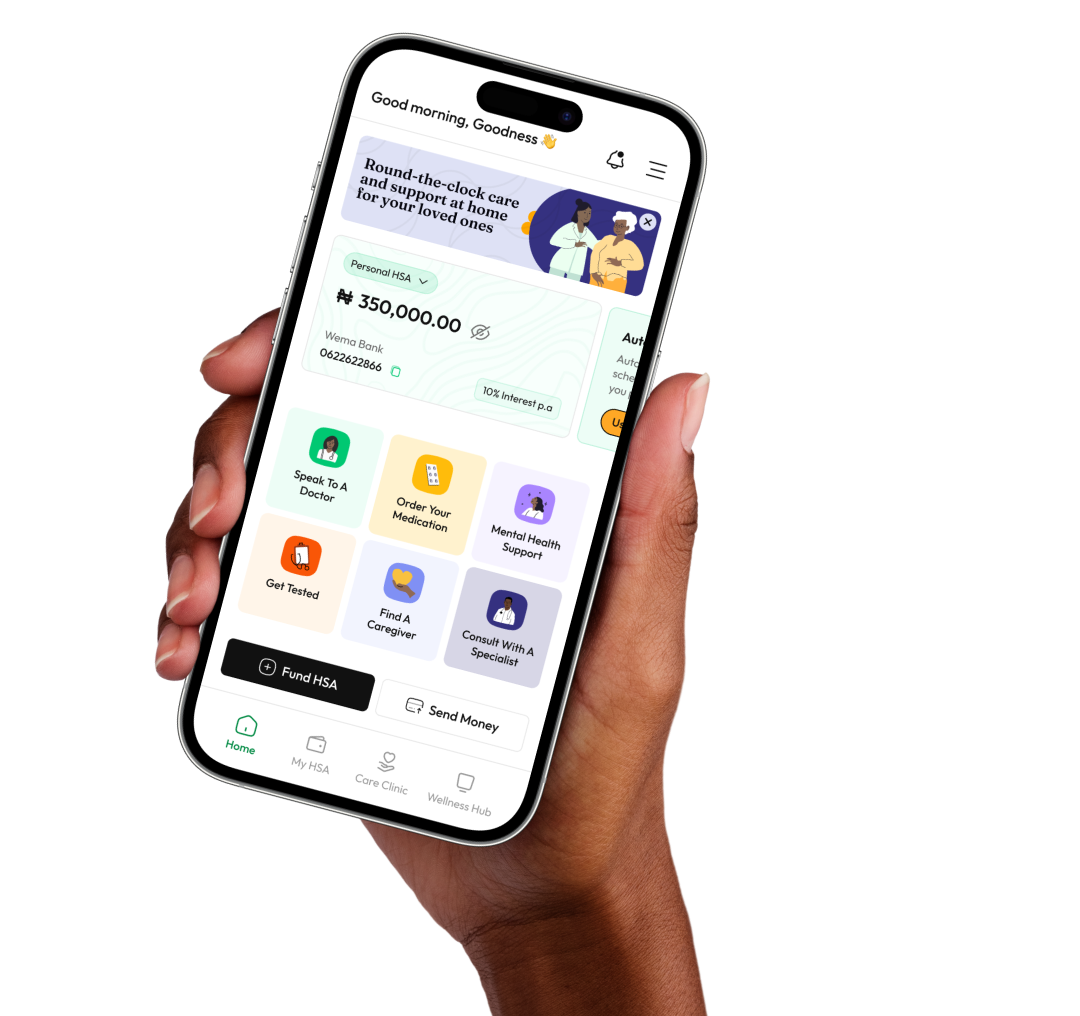As a Nigerian living in Nigeria, dealing with the constant rise in the cost of living, paying the highest fuel prices we’ve ever seen, and facing fuel scarcity nearly every other week, it’s easy to overlook how all these stressors can impact your health. But here’s the thing—catching those health issues early can make all the difference.
In May 2024, we conducted a general health check on the staff of a startup in Lagos with a hybrid work structure, and the results were eye-opening. Out of the 30 employees screened, a significant number displayed concerning health metrics that could directly impact their productivity and overall well-being. Here’s what we found:
Insights from the blood pressure results
We conducted screenings for 30 employees, and here’s what the results revealed about their blood pressure levels.
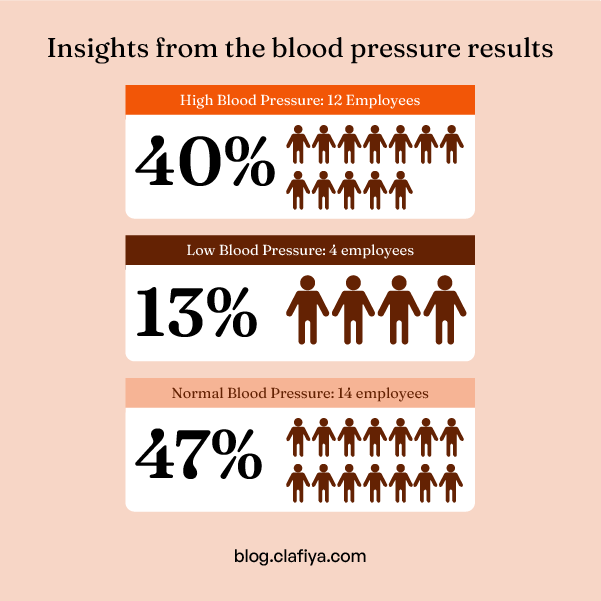
High blood pressure, or hypertension, was alarmingly common, affecting 40% of the employees. Often called the “silent killer,” this condition can quietly pave the way for serious issues like heart disease, stroke, and kidney problems if left unchecked.
On the other hand, 13% of employees had low blood pressure, which comes with its own risks—dizziness, fainting, and in severe cases, even shock. Both conditions are critical to address, especially when your health is on the line in the midst of everyday stresses we all face.
Insights from blood sugar levels
When it comes to managing stress and staying productive, blood sugar levels play a massive role. With the demands of everyday life—constantly moving between work, home, and everything in between—your body’s ability to regulate blood sugar can take a hit without you even realizing it.
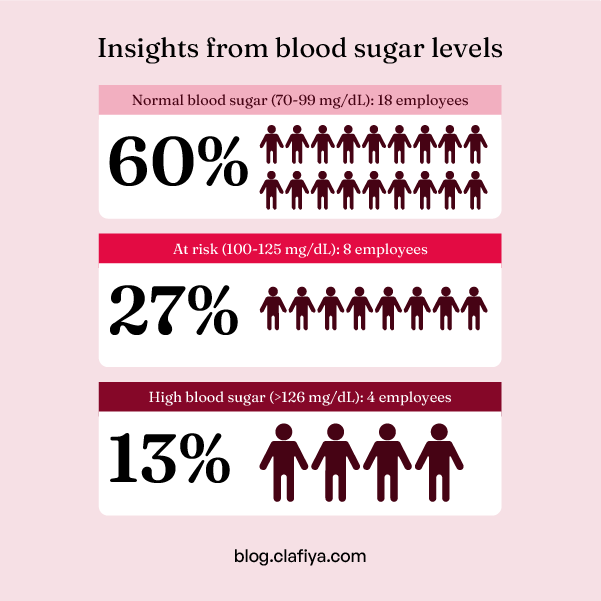
The results showed that blood sugar levels are another major red flag. A worrying 27% of employees are at risk of developing diabetes, while 13% are already showing dangerously high blood sugar levels. Elevated blood sugar can lead to constant fatigue, more frequent infections, and over time, serious complications like nerve damage and heart disease. This is your body’s way of telling you that something is off, and it’s important to pay attention.
Combined high blood pressure and high blood sugar insights
Our data also revealed some critical insights into how high blood pressure and high blood sugar levels can occur together:
Both high blood pressure and high blood sugar: 7 employees (23%)
Both high blood pressure and at risk of high blood sugar: 5 employees (17%)
When these conditions occur together, they significantly increase the risk of developing further complications such as hyperlipidemia, where you have high levels of fat in the body, kidney and liver failure, heart disease, stroke, and even death. High blood pressure and diabetes often reinforce each other, creating a cycle that exacerbates both conditions. This interconnected risk emphasizes the need for comprehensive health management strategies.
How do these results affect the workplace?
The health findings from the recent screenings highlight some critical issues that resonate with many professionals in Nigeria. High blood pressure and unstable blood sugar levels are more than just individual health concerns—they have real implications for workplace dynamics.
Symptoms to watch for:
1. High blood pressure:
- Persistent headaches: Frequent headaches that don’t respond to usual treatments may indicate high blood pressure, often presenting as tension headaches at the back of the head.
- Dizziness or lightheadedness: Feeling unsteady or faint, especially when standing up quickly, can be a sign of elevated blood pressure.
- Shortness of breath: Difficulty breathing or experiencing breathlessness during minimal exertion may be related to high blood pressure affecting your cardiovascular system.
- Chest pain: Unexplained chest pain, whether sharp or dull, can be a serious symptom linked to hypertension and should be evaluated promptly.
- Visual changes: Blurred or distorted vision may occur if high blood pressure is affecting the blood vessels in your eyes.
2. Low blood pressure:
- Dizziness or lightheadedness: Feeling faint or dizzy, especially when standing up quickly, maybe a sign of low blood pressure.
- Fatigue: Persistent tiredness and weakness can result from insufficient blood flow and oxygen reaching your tissues.
- Blurred vision: Low blood pressure can affect your vision, causing it to become blurry or dim.
- Nausea: Low blood pressure can sometimes cause nausea or an upset stomach as your body struggles to maintain proper blood flow.
- Confusion: Reduced blood flow to the brain can lead to confusion or difficulty concentrating.
3. High blood sugar:
- Increased thirst and frequent urination: Excessive thirst and frequent trips to the bathroom are signs that your body is trying to manage high blood sugar levels.
- Unexplained weight loss: Losing weight without changes to your diet or exercise routine can be a symptom of uncontrolled blood sugar levels.
- Extreme fatigue: Persistent tiredness, even after adequate rest, may result from high blood sugar affecting your energy levels.
- Blurred vision: High blood sugar can lead to temporary changes in vision due to fluid shifts in the eyes.
- Slow-healing wounds: Difficulty healing wounds or infections may indicate elevated blood sugar levels affecting your body’s natural healing processes.
4. Low blood sugar:
- Shakiness: Sudden trembling or shakiness, particularly if you haven’t eaten for a while, can indicate low blood sugar.
- Sweating: Excessive sweating without physical exertion may be a sign of hypoglycemia.
- Irritability: Mood swings or irritability can result from low blood sugar affecting brain function.
- Rapid heartbeat: A fast or pounding heartbeat can occur when your body responds to low blood sugar.
- Difficulty thinking clearly: Low blood sugar can impair cognitive functions, leading to confusion and difficulty concentrating.
Recognizing and addressing these health issues early can make a significant difference. When employees are healthier, they are more engaged and productive, which benefits both themselves and the company.
What you can do to get ahead of your health
Here’s what you can do to make sure your health is in tip-top shape and you stay on top of your tasks.
Make regular check-ups a thing: Schedule regular health screenings to monitor blood pressure and blood sugar levels. Early detection can prevent serious complications.
Adopt a healthy lifestyle: Eat a balanced diet, rich in fruits, vegetables, and whole grains, while reducing salt and sugar intake. Regular exercise is also key.
Focus on stress management: Practice stress-reducing techniques such as meditation, yoga, or hobbies that help you relax and unwind.
Prioritise work-life balance: Make sure you maintain a healthy work-life balance to avoid burnout. Set boundaries to manage your workload effectively.
Seek professional help about your health: If you experience any symptoms or have concerns about your health, consult with healthcare professionals for personalized advice and treatment.
Your health is your greatest asset, especially in the demanding environment we navigate every day in Nigeria. Taking care of yourself not only boosts your well-being but increases your productivity, making you the star performer in any team. So, if you’re aiming for “Staff of the Year” bonus, remember: a healthy body and mind are your best allies.

